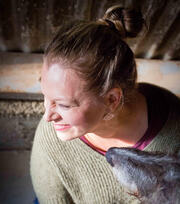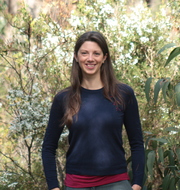Beasts and Bushes, Bits and Bytes: Inclusive Accountability and Algorithmic Decision-Making
This project was a successful recipient of CAIDE's 2022 seed funding round 'The Moral Crumple Zone'
Overview
This project will consider accountability of algorithmic decision-making in systems that involve humans and machines but also nonhuman entities, such as animals, plants, or rivers. This research is significant because severe harms to nonhuman beings continue without proportionate accountability.
Most conceptualisations of accountability exclude ecological justice and prioritize human needs. Instead, algorithmic oversight focuses on profitable human inventions, such as transportation or medicine. Resulting solutions do not translate to complex, incompletely understood, and unpredictably changing eco-socio-technical systems that exist in an acute and rapidly worsening global crisis.
This project aligns with ecocentric, distributed, and procedural ethics that support the autonomy and capabilities of nonhumans. It repositions algorithms as problematic but also promising ways to transmit nonhuman political voices and negotiate accountabilities in reference to all life. Specifically, we ask: what defines accountability of algorithmic decisions in more-than-human communities? Our response to this question is that empowerment of nonhuman stakeholders can clarify accountabilities in algorithmic decision-making leading to more just and resilient governance, management, and design.
To evaluate this hypothesis, we:
- Compare smartness in biotic, cultural, and technical assemblies;
- Trace more-than-human decision making in concrete cases; and
- Analyse implications of this framing for accountability.
Our cases will regard harms and benefits in smart urban ecologies, algorithms in more-than-human welfare, and interspecies design. Testing decision making in the context of limited resources and divergent needs, this project will develop procedural, multi-generational, multispecies, and adaptable conceptions of accountability. Our methods will make them dependable on continued monitoring, renegotiation, and redesign within more-than-human collectives. This innovative inclusion of nonhuman beings poses important questions for ethics, law, ecology, sociology, engineering, and design, revealing the need for, and the potential positive impact of , further research. Our multidisciplinary team engages with these challenges to support more equitable governance and better lives, human and nonhuman.
Research Team
- Dr Sarah Webber

Research Fellow
School of Computing and Software Systems
University of Melbourne
- Professor Christine Parker

Melbourne Law School
University of Melbourne
- Professor Brock Bastian

Melbourne School of Psychological Sciences
University of Melbourne
- Doug Brock

Researcher
Melbourne School of Design
University of Melbourne
- Dr Mia Cobb

Research Fellow
Faculty of Veterinary and Agricultural Sciences
University of Melbourne
- Dr Stanislav Roudavski

Senior Lecturer in Digital Architectural Design
Faculty of Architecture, Building and Planning
University of Melbourne
- Dr Kylie Soanes

Research Fellow in Urban Biodiversity
School of Ecosystem and Forest Sciences
University of Melbourne